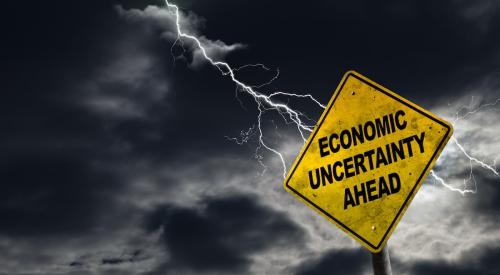What does not kill you makes you stronger. The 2010s may not have been the strongest economic decade, but it definitely makes the list of best comebacks. For the first time ever, the U.S. started and ended a decade without a recession—a huge win for the American economy after the strain of the Great Recession. Behind the scenes, this decade’s economic expansion has a dizzying array of moving parts, from federal stimulus packages to low interest rates. And economists cite that context explains a large part of the economy’s abnormal behavior: We started in such a financial hole, that we’re still recovering. We almost had no other option than to keep expanding until the economy returns to normal. Still, this news comes as a relief after years of economic uncertainty.
There’s a saying among economists that “expansions don’t die of old age.”
In the case of the American economy over the past decade, it rings true.
As of December, the U.S. economy has expanded for a record 126 straight months, the longest time period in the country’s history according to the National Bureau of Economic Research. Put another way, the U.S. has avoided a recession for an entire calendar decade for the first time ever.
“It is unusual that this has been such a persistent recovery,” Michelle Meyer, chief U.S. economist at Bank of America Merrill Lynch, told CNBC.
Starting at a low
Economists cite a few reasons for why the expansion has lasted for so long. For one, the U.S. was coming from a low point at the end of the last decade. Much of the expansion over the past ten years has been spent recovering from the Great Recession.
“It’s almost hard to imagine how awful that time was,” said David Wilcox, former director of the Division of Research and Statistics at the Federal Reserve Board and a current senior fellow at the Peterson Institute.













